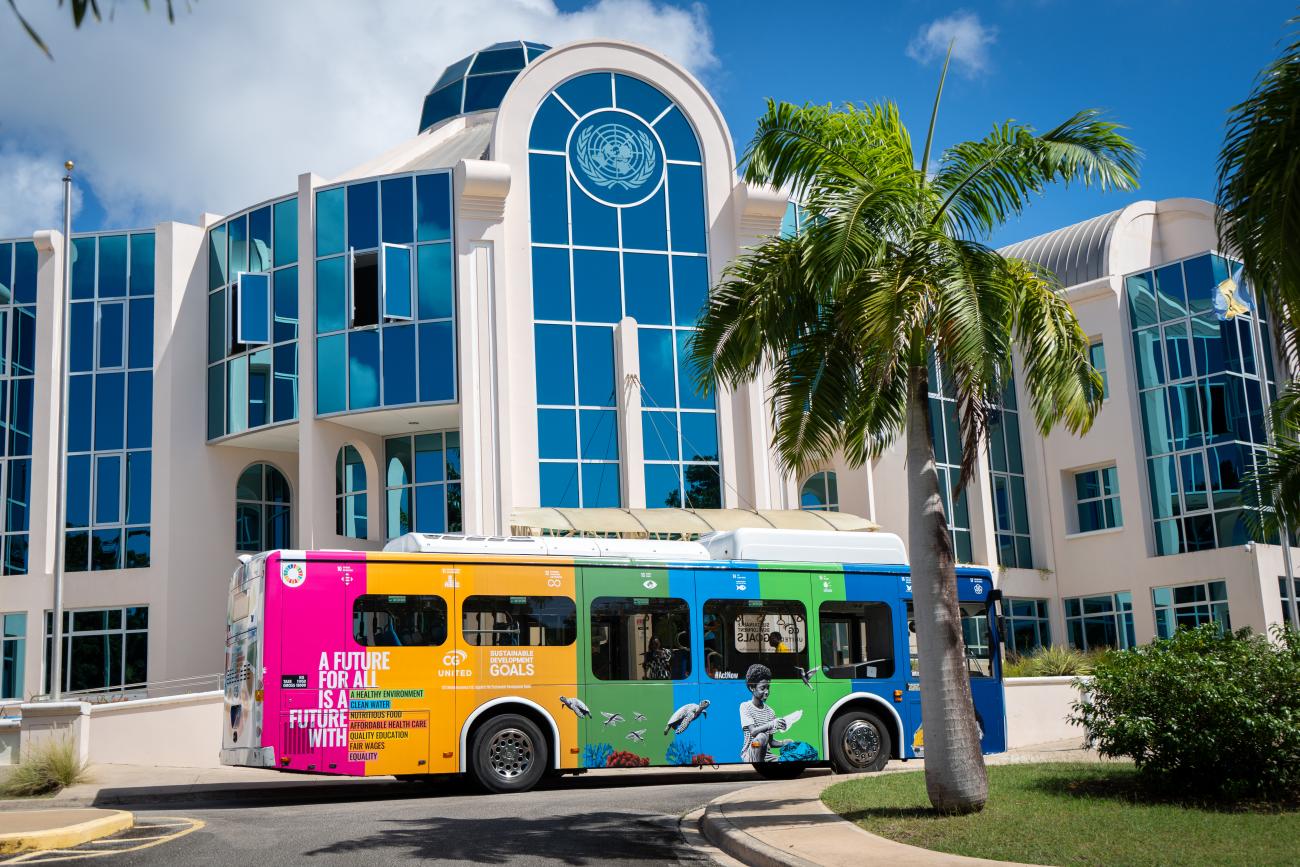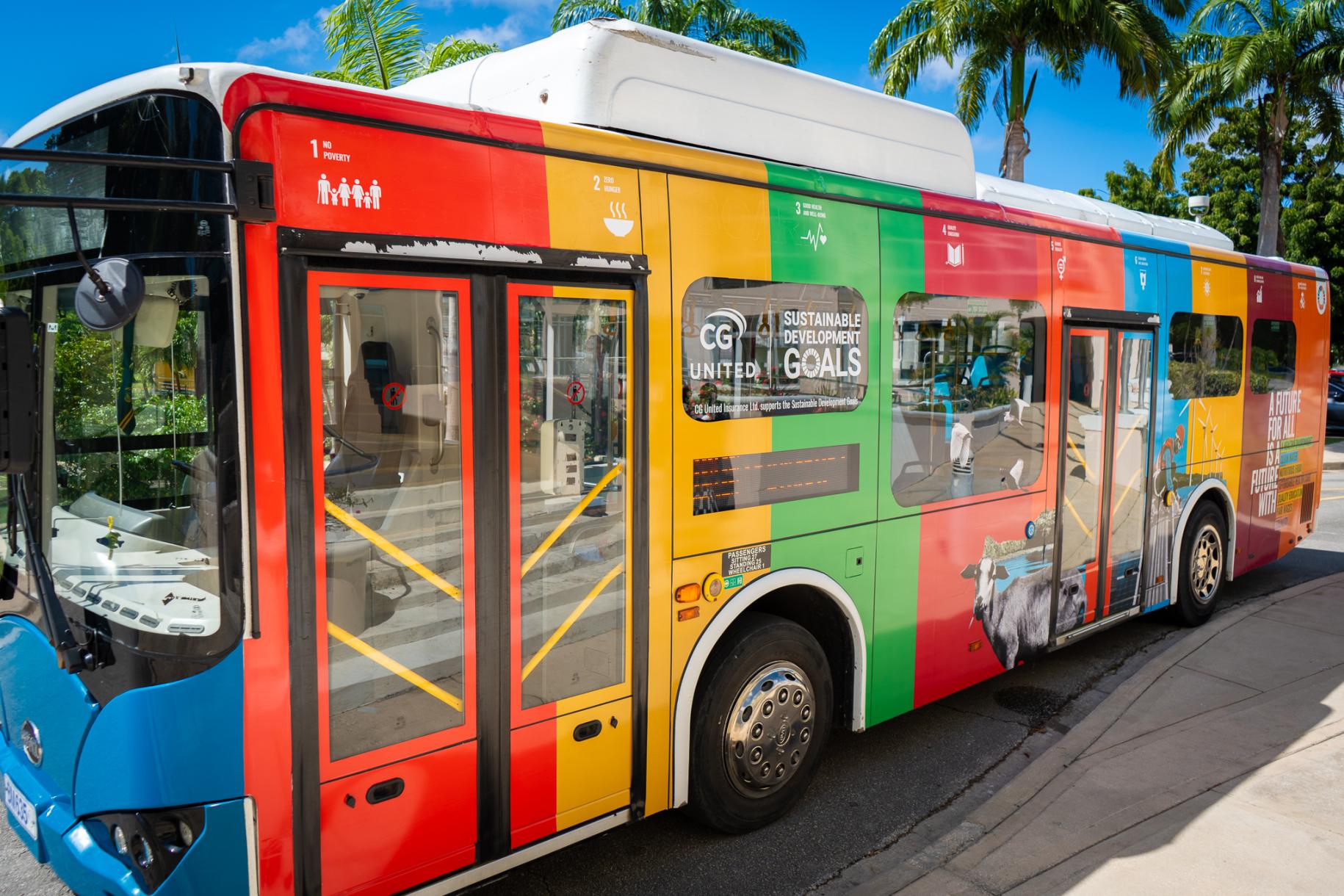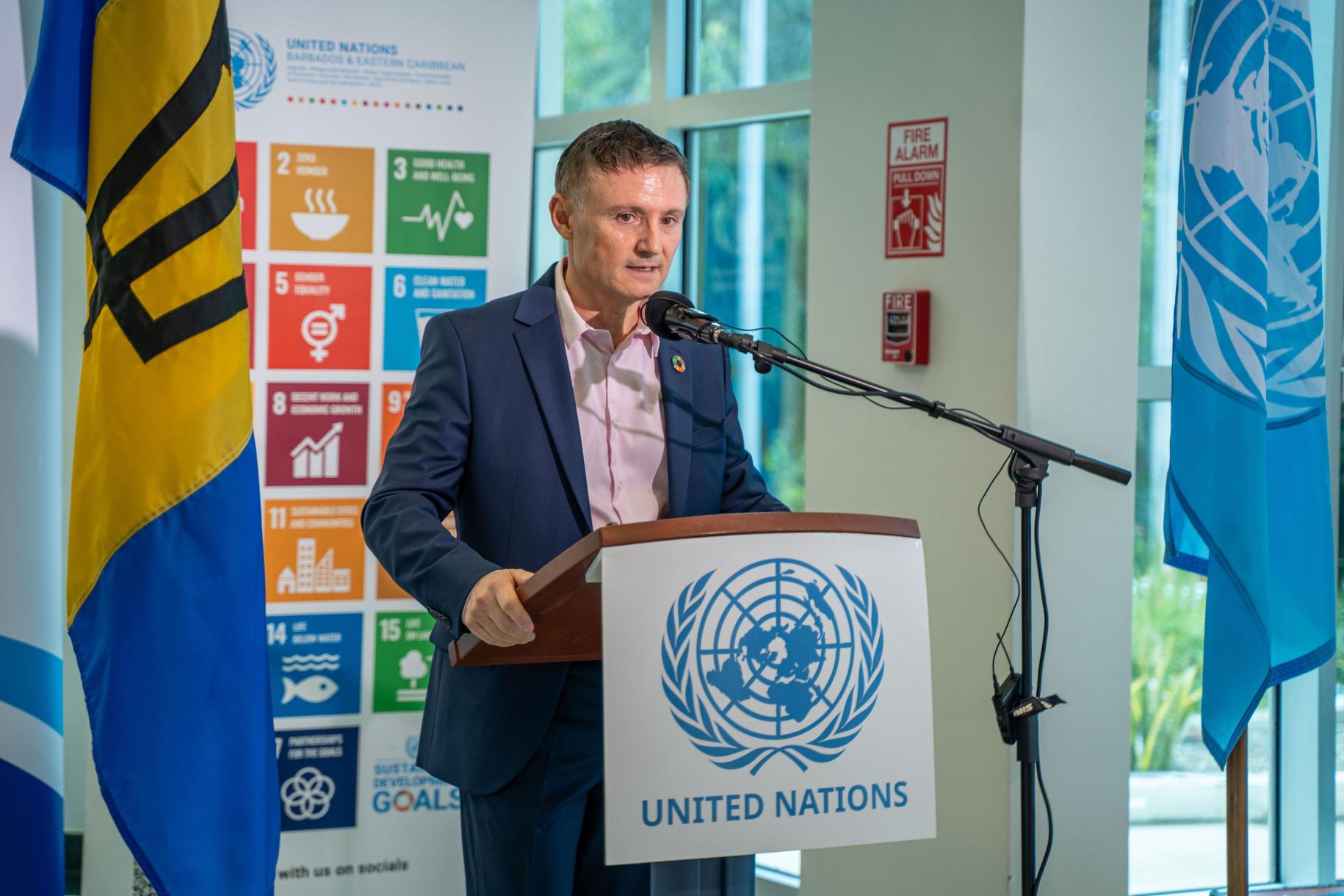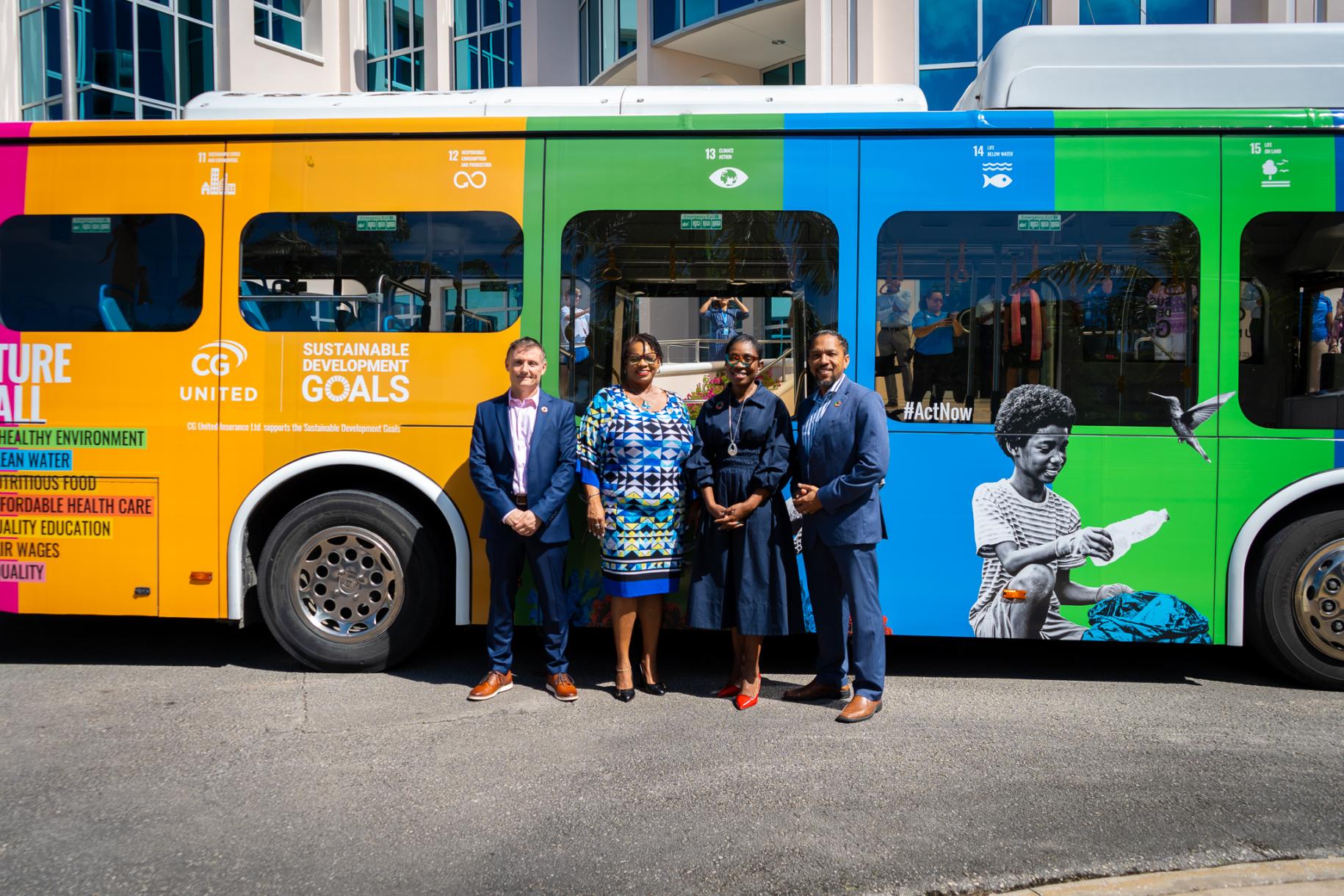On the Road to 2030: UN, Government and Private Sector launch SDG Bus in Barbados

The UN in Barbados has a new and unexpected addition in its “sustainable development” arsenal: an SDG-branded electric bus!
The UN Team in Barbados launched the region’s first SDG-branded electric bus, a vibrant vehicle, as part of the UN’s own efforts to adopt a more environmentally friendly transport option as well as meeting Barbados’ vision of achieving 100% renewable energy and carbon neutrality by 2030.
The bus carries a clear message: “A Future for All is a Future with: A Healthy Environment; Clean Water; Nutritious Food; Affordable Healthcare; Quality Education; Fair wages and Equality.”
This initiative is expected to reach hundreds of commuters in Barbados, including school children and senior citizens, who will also learn more about the Global Goals and how they can do their part.
Electric vehicle penetration continues to steadily grow on the island. As of 2021, approximately, 450 electric vehicles were registered in Barbados. This new bus is part of an existing fleet of 59 electric buses owned by the Barbados Transport Board and in line with the Government’s National Climate Plan.

Barbados forges ahead with National Climate Plan
Partnerships among the UN, Government and private sector have been critical to driving climate action in Barbados and indeed, even for the launch of this bus.
Minister in the Prime Minister’s Office, Senator Dr. Shantal Munro-Knight, described it as an exemplar, particularly for SDG17: “The spirit of SDG 17 recognizes that we cannot as a nation, as people, achieve the SDGs on our own, but that we need collaboration at different levels to be able to do so. SDG 17 calls on Governments, it calls on the private sector, it calls on the UN, it calls on other development agencies, to be able to put our hands to the toil for our society and for our people.”
The efforts to scale up renewable energy come at the right time, even as fuel prices continue to rise. Yet, without a change in global financial architecture, as Dr. Munro-Knight emphasized, small island developing states run the risk of incurring a debt crisis as a result of having to divert large portions of national budgets for climate finance.
RC System in Action
After months of coordination, under the leadership of the RCO communications, partnerships, and Global Compact teams, with the support of the UN Communications Group, the vision of the island’s first SDG bus became a reality. The launch of the SDG bus was possible through the generous support of CG United Insurance Limited, as well as support of the Barbados Transport Board. With efforts underway to expand private sector collaboration , it is expected that other SDG buses will follow suit.
Speaking in this regard, the UN Resident Coordinator, Didier Trebucq said,
“CG United's partnership and their sponsorship of this bus is a tangible example of the transformative power of private sector collaboration. This is proof that when companies step up - like CG United, the Barbados Transport Board, as well as Flow and Massy, who have also joined this campaign in Saint Lucia and Saint Vincent and the Grenadines, the effects of positive change can touch countless peoples across our islands.”
Beyond this awareness raising, in light of limited renewable energy policies and funding pipelines in the region, the Resident Coordinator Office and the UN Sub-regional Team are also supporting efforts towards investments in clean energy. According to latest research from the UN Environment Programme, a large-scale shift from to renewable energy-based electricity could bring the Latin America and Caribbean region a net benefit of US$1.2 trillion and generate over 35 million new jobs by 2050.

Under the leadership of the Resident Coordinator, the UN Team is working to leverage the respective agencies’ capacities to help bring to scale the renewable energy sector. Last year, the RCO and the UNCT convened a multi-stakeholder engagement aimed at scaling up efforts towards renewable, clean, and green energy solutions.
This is part of an overarching trust by the UN Team to promote the SDGs and build resilience in Barbados and across the region through enhanced policy support, capacity building and empowerment of vulnerable groups in an effort to leave no one behind.
Private Sector’s Responsibility for a Sustainable Future
In addressing the launch of the new bus, Randy Graham, the Chief Executive Officer of CG United Insurance Limited , a regional property and casualty insurer, said his company was happy to be one of the first in the private sector to answer the UN’s call to support climate action and clean energy, being cognizant of the impact that individual behaviors can have on the environment, our people, and our businesses.
“As a member of the United Nations Global Compact, we are aware of our Company’s role in our region’s achievement of the Sustainable Development Goals by 2030. Being a responsible corporate citizen, we have begun our journey to align our practices to ensure a sustainable and inclusive future for the people of Barbados and the regional markets in which we live and operate,” he said.
Lynda Holder, Chief Operations Officer of the Barbados Transport Board echoed similarly: “The SDGs, as outlined by the UN, are meant to serve as a compass for global efforts to address some of the most pressing challenges facing humanity, and as a responsible corporate citizen we recognize the importance of aligning our operations with those global goals to create a positive impact.”

For more information about the UN's work in Barbados and the Eastern Caribbean, visit easterncaribbean.un.org.













